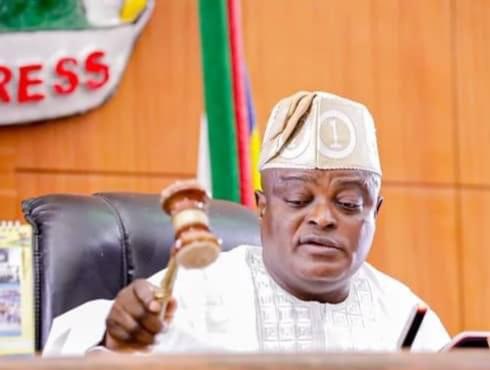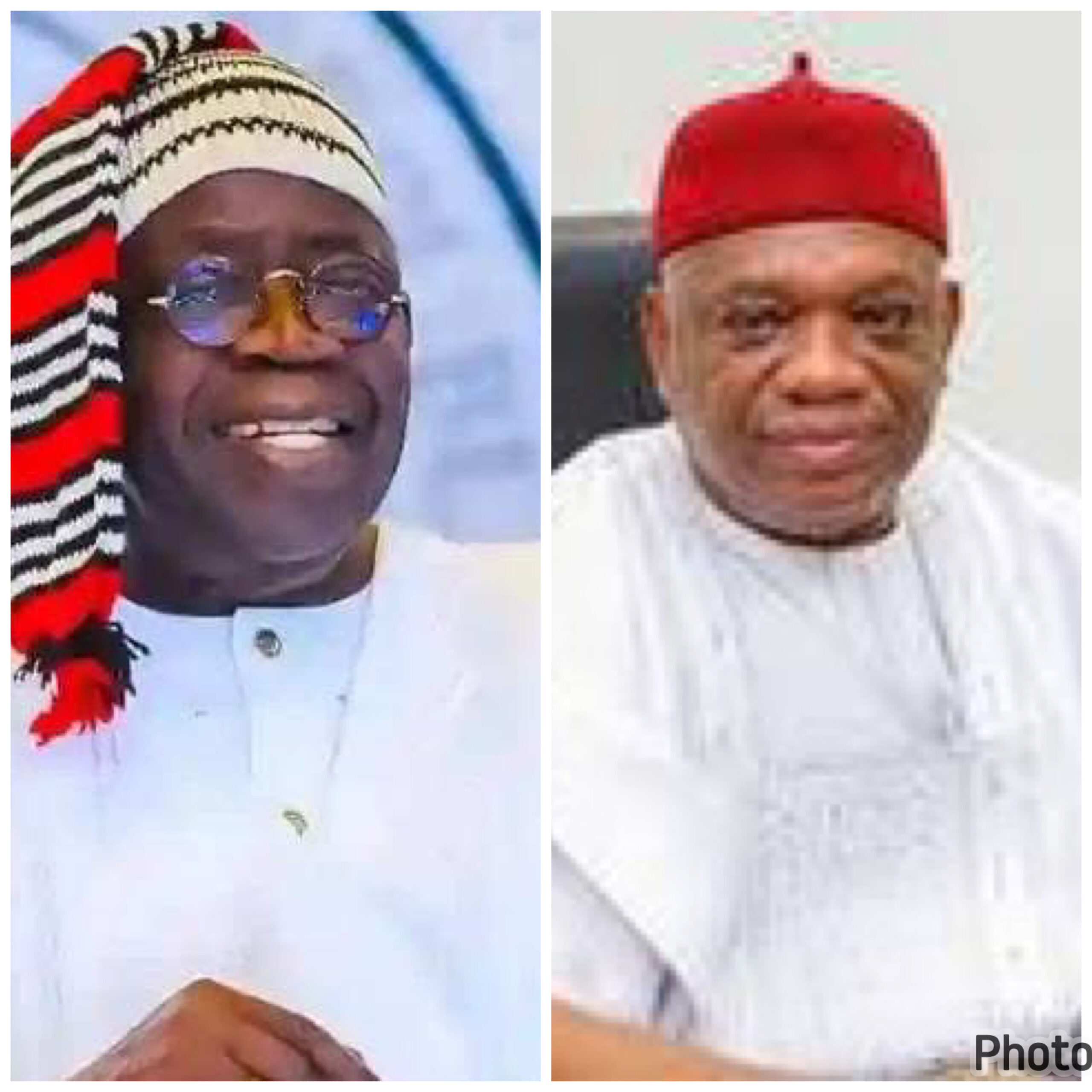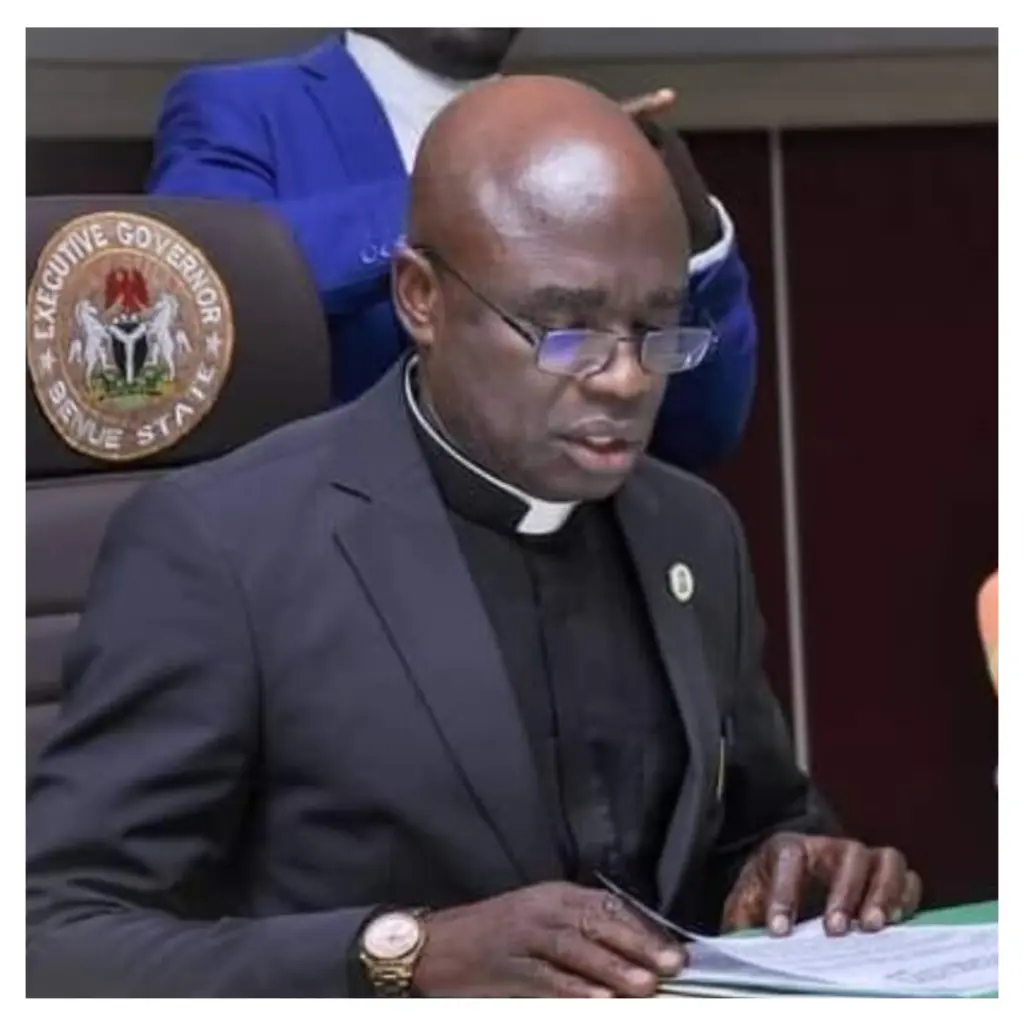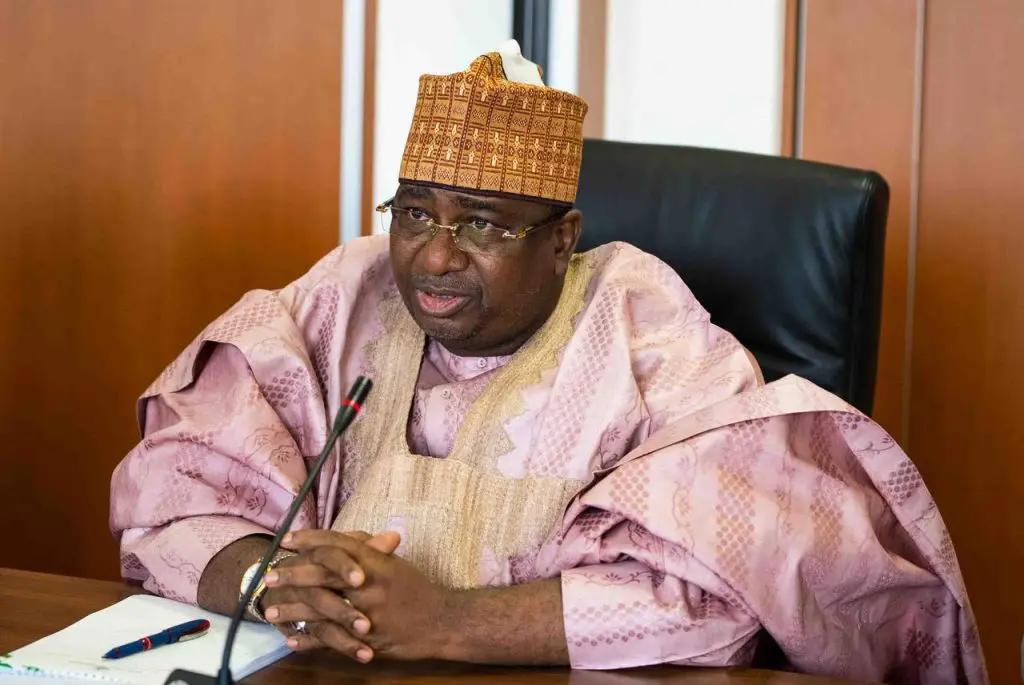Politics
Lagos Assembly Set To Replace LCDAs With Administrative Areas
Published
6 months agoon
By
Ekwutos Blog
…Gives Governor Power To Suspend Erring Chairmen, Vice Chairmen
The Lagos State House of Assembly is set to replace the current 37 Local Council Development Areas (LCDAs) in the state with Administrative Areas.
This is contained in a Bill for a Law to provide for Local Government’s System, Establishment And Administration And to Consolidate All Laws On Local Government Administration And Connected Purposes, which went through public hearing on Thursday.
The bill specifies that the system of Local Government will be by democratically elected Local Governments.
According to the Bill, there shall be twenty (20) Local Government Areas in the State as specified in the Constitution of the Federal Republic of Nigeria, 1999.
The bill is coming on the heels of the financial autonomy recently granted the 774 local governments in the country by the Supreme Court, which specified that money would not be released to any local government, which has no democratically elected executive members.
“As from the commencement of this Law, the Lagos State Independent Electoral Commission (LASIEC) shall conduct elections into the twenty (20) Local Government Councils in the state as recognised by the Constitution of the Federal Republic of Nigeria, 1999 (as altered).
“The twenty (20) Local Government Councils shall have designated Area Administrative Offices as listed in the 1st Schedule to this Law for effective and efficient local government administration in the State.
“Each Local Government Area will have its headquarters in the place names in the third column of Schedule 1 to this Law.
“There shall be thirty-seven (37) Area Administrative Councils in the State with the names specified in Schedule 11 of the Creation of Local Government Areas (Amendment) Law of 2004,” the Bill stated.
It was added that each Local Government’s Administrative Council shall be headed by Area Administrative Secretary, who shall be appointed by the Governor subject to the confirmation of the House.
The Bill stated further that each Area Administrative Council shall be funded by the Local Government Area under which it falls.
Moreso, it was stated that each Local Government Area has the power to delegate any of its functions to the Area Administrative Council falling within the territory of the Local Government Area.
“Notwithstanding anything to the contrary in any other law, each Area Administrative Council will retain all the rights, interests, obligations and liabilities, which became vested in or attached to it under any contract or instrument, or on law or equity, all the time it was operating as a Local Government Area.
“Subject to the provisions of the Independent National Electoral Commission (INEC) Act, the State Electoral Commission, LASIEC, shall divide each Local Government Area into such number of wards, not being less than twelve (12) or more than forty (40) as the circumstances of each Local Government Area may require,” the bill read.
The proposed law, in Section 30, stated that the Governor shall have the right to suspend any Chairman or Vice Chairman or any elected official/political appointee, which it said shall at the expiration of such suspension resume office and shall notify the House upon resumption of office.
The law however, repealed the Local Government Administration Law Ch L89 Laws of the Lagos State 2015 and the Local Government Administration (Amendment) Law, 2016.
Stakeholders at the event, including His Royal Majesty, the Ayangburen of Ikorodu, Oba Kabir Shotobi, the Chairman of Odi Olowo/Ojuwoye Local Council Development Area (LCDA), Hon Rasak Ajala, a former commissioner in the state, Hon Oyinlomo Danmole and Senator Musiliu Obanikoro, faulted some aspects of the bill.
Specifically, Hon. Ajala faulted the law, saying that it would lead to underdevelopment in the grassroots.
The Chairman stated that the financial autonomy granted local governments should not change anything in the arrangements in Lagos State, which he said was fought to the Supreme Court then.
According to him, “even with LCDAs, the money meant for a particular area would be shared by the main local government and the LCDAs, so changing them to development areas would have no effect.
“The Assembly should leverage on the powers conferred on them by Section 7 sub-section 1 of the Nigerian Constitution and allow the LCDAs to be,” he said.
This was also the position of HRM, Oba Shotobi, who insisted that the LCDAs are aiding developments in the grassroots.
In his comments, Senator Musiliu Obanikoro faulted the Assembly for not giving the public hearing proper publicity, saying that the problems in the local governments are deep and profound.
“The public hearing is being done without due consultations. In a democratic setting, the people are more important. I can’t even see any leader of our party, the All Progressives Congress (APC), here. What we enjoyed as local governments chairmen are no longer there,” he said.
The Speaker of the House, Rt. Hon Mudashiru Ajayi Obasa, said earlier in his speech delivered by his Deputy, Hon Mojisola Meranda, that “we are gathered here to consider and reflect on a bill that seeks to further enhance how our third tier of Government should be administered.”
Obasa recalled that just about two weeks back, people were also gathered to deliberate on the electoral bill for the Local government elections which he said is the first right step before the House could go into how the local government should function.
“This Bill has passed the preliminary stages and the House is hereby subjecting it to public appraisal in our transparent convention.
“At this stage, we subject the bill to public assessment, gathering public observations and thoughts to reflect on them in the next stage of the bill.
“The bill is seeking to consolidate all laws on Local Government administration. The law, when passed, will allow the local government function optimally with strict adherence to the rule of law and separation of powers within the Local Government.
“The bill clearly states the functions of the Chairman, Vice chairman, Legislative council and other local government functionaries.
“The Bill also makes emphasis on creation of thirty–seven Area administrative councils, in addition to the original twenty Local Government listed in the bill, the councils would be headed by Area administrative secretaries to be appointed subject to the approval of the House,” he said.
The Speaker stressed that the bill also made mention of four years tenure for the elective offices in the local government, which he said has finally removed the ambiguity of the past as regards tenure of these elective officers.
The bill, he said, has elaborated upon all that needs to be done for an effective administration of the Local government be it, declaration of assets, nomination of a chairman, removal of a chairman or vice chairman, discharge of functions of the chairman, local government area supervisors appointees, Executive powers of the local government, street naming and many more.
The Chairman of the House Committee on Local Government Administration, Chieftaincy Affairs and Rural Development, Hon Sanni Family Okanlawon, said that the purpose of the public hearing was to allow the people make meaningful contributions to the bill before it is passed into law by the assembly.
You may like
Politics
PRESIDENT TINUBU CELEBRATES SENATOR ORJI UZOR KALU AT 65
Published
23 minutes agoon
April 21, 2025By
Ekwutos Blog
STATEHOUSE PRESS RELEASE
PRESIDENT TINUBU CELEBRATES SENATOR ORJI UZOR KALU AT 65
President Bola Tinubu congratulates Dr Orji Uzor Kalu, former Governor of Abia State and Senator representing Abia North Senatorial District, on his 65th birthday.
President Tinubu reflects on their enduring friendship and shared commitment to national progress, rooted in their membership of the “Class of ’99” Governors.
The President extols the former Majority Whip’s unwavering patriotism, recalling decades of collaboration marked by mutual respect, even with political differences.
He lauds Senator Kalu’s entrepreneurial spirit, as epitomised in his establishment of Slok Holding and investments in banking and the media, ventures that have created hundreds of jobs.
“Senator Kalu, my friend, is a patriot whose life embodies resilience, generosity, and the transformative power of visionary leadership. On this milestone, I celebrate his contributions to our nation’s economic and political tapestry,” President Tinubu says.
The President prays that God Almighty will grant Senator Kalu renewed strength, wisdom, and many more years of impactful service to Nigeria and humanity.
Bayo Onanuga
Special Adviser tot the President
(Information and Strategy)
April 21, 2025
Politics
Benue was bleeding, now it’s healing – Governor Alia
Published
6 hours agoon
April 21, 2025By
Ekwutos Blog
Benue State Governor, Hyacinth Alia, has declared that the state, once overwhelmed by insecurity and mismanagement, is now on a path to healing under his leadership.
Speaking in an exclusive interview with Vanguard, Alia reflected on his transition from Catholic priesthood to politics, his administration’s efforts in tackling insecurity, and his unique approach to fiscal discipline.
As he marks 35 years in the priesthood this July, Alia revealed that his decision to enter politics stemmed from a deep understanding of the challenges facing Benue.
“I’ve spent my life serving the people of Benue in the suburbs, understanding their struggles. It wasn’t difficult for me to transition because I was already working to fix problems as a priest,” he said.
Alia said his transition into politics was driven by an urgent desire to bring change. “As a priest, you spend your time supporting people, solving environmental and family problems. Politics was just an extension of that, although with the added responsibility of navigating a complex political environment,” he added.
On the issue of insecurity, the governor delved into the historical context, explaining that Benue’s security challenges are linked to broader regional dynamics. He noted that Benue, like other parts of Nigeria, is facing a deepening crisis caused by the ECOWAS transhumance protocol, which allowed for cross-border grazing.
“When we were growing up, there were no issues with herders. But after the ECOWAS protocol was adopted, things drastically changed,” he explained.
Alia disclosed that as of June 2024, about 500,000 people from 17 of the state’s 23 local governments were displaced due to violence.
“Our people are primarily farmers, but we’ve seen the land grab that accompanies these attacks. This is no longer pastoralism – it is a calculated destabilization,” he said.
He also emphasized that despite the challenges, his government is working to tackle displacement through a three-pronged solution: temporary shelter, integration, and relocation back to ancestral lands.
Alia urged the Federal Government to reconsider Nigeria’s participation in the ECOWAS protocol, calling for a review of the policy that has contributed to insecurity. “If the Federal Government revisits this protocol, it could make a huge difference. We need to fix our internal security first,” he said.
In addressing the state’s finances, Governor Alia revealed his commitment to fiscal transparency, pointing to the consistent payment of salaries on the 25th of each month.
“Before I came in, civil servants and pensioners went without their pay. I inherited N359 billion in debt, but we found a way to make sure workers get their pay on time,” he said, adding that he had implemented a new standard where salaries are paid even on public holidays or weekends.
Despite facing criticism from some quarters, particularly among the political elite, Alia stood firm in his belief that timely salary payments were a necessary reform. “People used to take the fish without learning to fish. Now, they’re learning to be self-reliant, and it’s creating some enemies,” he said.
The governor also reflected on his relationships with the judiciary and his political party, stressing that his administration is committed to transparency and the rule of law. “There have been no issues with the judiciary. We followed due process with the NJC, and any disputes were addressed professionally,” Alia explained.
As he looks towards the future, the governor expressed confidence that his administration’s approach to governance will continue to transform Benue. “It’s about proper planning, strategy, and execution. We’ve brought a new thinking to Benue, and the people are beginning to see the difference,” he concluded.
Politics
Kebbi: Era of handpicking LG chairmen is over – Gov Idris
Published
10 hours agoon
April 21, 2025By
Ekwutos Blog
Kebbi State Governor, Nasir Idris, has declared an end to the era of handpicking local government chairmen in the state, affirming that those currently holding office were genuinely chosen by the people.
The governor made this known while addressing journalists on Sunday, shortly after a consultative meeting with the 21 local government chairmen, their deputies, and 225 councilors at the Government House, Birnin Kebbi.
Expressing satisfaction with their performance so far, Governor Idris praised the council officials for their unwavering loyalty and support to his administration.
“I am happy about their performance. The chairmen have shown unalloyed loyalty and have justified the confidence reposed in them. Most importantly, they are the true choices of their people, and the era of handpicking candidates is gone for good in Kebbi State,” he declared.
The governor explained that the essence of the meeting was to engage directly with local government leaders, understand the issues affecting grassroots communities, and jointly chart a course for accelerated development.
“Sessions like this allow us to rub minds, identify challenges, and find practical solutions that will fast-track development in our communities,” he noted.
Governor Idris also reaffirmed his administration’s commitment to inclusive governance through continuous consultation with key stakeholders, aimed at improving the socioeconomic wellbeing of the people.
The meeting was led by the state chairman of the Association of Local Governments of Nigeria (ALGON), Alhaji Muhammad Dahiru Nayaya Ambursa, who doubles as chairman of Birnin Kebbi Local Government.
Also in attendance were the Kebbi State APC chairman, Abubakar Kana Zuru; Secretary to the State Government, Yakubu Bala Tafida; Commissioner for Local Government and Chieftaincy Affairs, Garba Umar Dutsinmari; and the Accountant-General, Muhammad Bello Ibrahim Nahaliku.

PRESIDENT TINUBU CELEBRATES SENATOR ORJI UZOR KALU AT 65

PRESIDENT TINUBU’S STATEMENT ON THE PASSING OF HIS HOLINESS POPE FRANCIS

Trump orders American flags flown at half-mast to honour Pope Francis
Trending

 Trending6 months ago
Trending6 months agoNYA demands release of ‘abducted’ Imo chairman, preaches good governance
- Business6 months ago
US court acquits Air Peace boss, slams Mayfield $4000 fine

 Politics6 months ago
Politics6 months agoMexico’s new president causes concern just weeks before the US elections
- Entertainment6 months ago
Bobrisky transferred from Immigration to FCID, spends night behind bars
- Entertainment6 months ago
Bobrisky falls ill in police custody, rushed to hospital

 Politics6 months ago
Politics6 months agoRussia bans imports of agro-products from Kazakhstan after refusal to join BRICS

 Politics6 months ago
Politics6 months agoPutin invites 20 world leaders
- Politics1 year ago
Nigerian Senate passes Bill seeking the establishment of the South East Development Commission.

